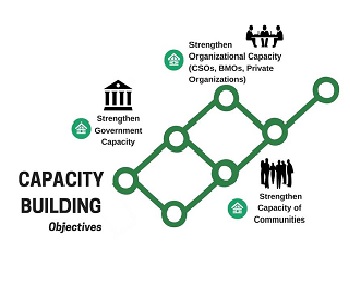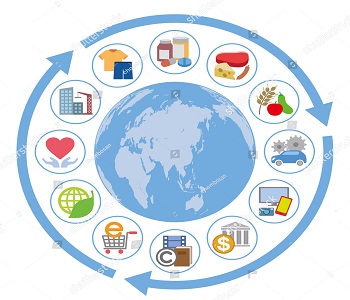Who we are
The Research and Policy Integration for Development (RAPID) Society, established in December 2015 in Dhaka, is a private, non-profit and non-partisan research organisation registered with the Registrar of Joint Stock Companies and Firms in Bangladesh.
The main sphere of RAPID activities is to engage in development research and advocacy with the objective of contributing to policy discourse and awareness building. The fundamental RAPID objective is to integrate research with policy so that any analytical work and evidence can meaningfully lead to practical actions and/or scrutinise developmental impact.
The RAPID perspective is a practical and goal-oriented one in which achieving better outcomes is the key decisive factor in undertaking research and analysis. RAPID has adopted a flexible approach in which it acts as a platform where experts/resource persons are pulled together to address problems at hand, utilising multidisciplinary approaches, combining both quantitative and qualitative methods of policy research. RAPID is also about promoting a deeper understanding of the Bangladesh economy, which is fast transforming. It is committed to undertaking and disseminating evidence-based, policy-oriented socio-economic research among public policymakers, development partners, entrepreneurs, and the academic community.
Our objectives
- To conduct research, academic investigations and impact evaluations on development issues in such broad areas as macroeconomics, fiscal and monetary policy, international trade, poverty, gender, health, education, social protection, governance, private sector development, microfinance, energy, environment, climate change, digital economy, disaster management, and environmental and social impact assessment (ESIA).
- To conduct various capacity strengthening and institutional development programmes including workshops, seminars, conferences, policy dialogues, etc.
- To formulate, design, and implement various quantitative and qualitative methodologies to generate evidence for meaningful policy discourse and follow-up actions.
- To pursue effective engagements at all levels to influence policymaking for the advancement of social welfare.
- To facilitate a healthy peer-review culture that make research evidence accountable and that helps advance socio-economic research on Bangladesh.
- To advance knowledge combining experimental and innovative approaches in order to complement the above research, advocacy, and capacity development initiatives.
- To design and run appropriate advocacy initiatives on the issues of interest.
Current areas of RAPID research include but not limited to the following:
- Inclusive growth including women’s participation in economic activities
- Green growth
- Climate change, environment, and strategies for mitigation and adaptation
- Urbanisation and the nature of urban poverty and inequality
- Environmental and social impact assessment (ESIA)
- International trade, WTO agreements and globalisation
- Reforms in tax policy and tax administration
RAPID has established a solid track record of undertaking high quality research and consultancy assignments. Its work has featured experts of different background coming together providing insightful and comprehensive perspectives of the issues of interest. RAPID boasts its capacity of building excellent rapport with its clients in giving due consideration to their needs while helping them with solutions that they need to meet their programme objectives.
RAPID’s evidence-based and policy-oriented socio-economic research and advocacy have helped assess national social security strategies, urban poverty situations, working conditions of labour, amongst others. RAPID has worked with Members of the Parliament, senior policymakers, development partners, workers, entrepreneurs, and media to generate awareness, discuss possible solutions to existing problems, and help establish an accountability process. RAPID’s reaching-out and evidence-based policy solutions have attracted serious attention and we feel encouraged to make further contributions in the future.

Thematic areas

Inclusive Growth

Capacity Building

SDGs, Poverty, Social Protection and Human Development

Migration

Climate Change and Green Economy

Budget, Financial Accountability, and Transparency

Gender, Equity and Development

Demographic Governance

Trade and Globalisation


